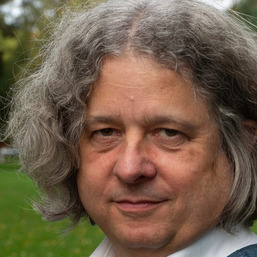
Obstruction of critical views is fundamentally paternalistic
The uproar surrounding “gender studies” at the UvA has led to a report by an external committee and public statements by the rector magnificus, among others. Computer scientist Jan Bergstra and ethicist Marcus Düwell propose three principles to ensure both social safety and academic freedom.
We consider it necessary to conduct a fundamental academic discussion within the Dutch-speaking world about the different views on gender and sexuality but this discussion can only happen under specific conditions.
To begin with, it is striking that both the committee and the rector magnificus have great difficulty in outlining a clear normative perspective, one that safeguards both social safety and academic freedom, and thus clarifies what may or may not be said. However, it does not seem so complicated to us to outline a normative perspective that is consistent both with the preconditions of an open society and the university's mission statement. We propose three principles:
Self-identification and critique
First, every member of the university (both staff and students) has the right to self-identify as non-binary and to be transgender. On the basis of this self-interpretation, everyone should be able to expect to be neither bullied nor discriminated against nor experience any disadvantages in their studies or work. Everyone has the right to stand up for an associated view of gender and sex within the constraints of academic discourse.
Second, every member of the university has the right to critically question gender-related concepts such as non-binarity or transsexuality provided this is done with academic methods. Those who criticize such concepts should not have to fear experiencing employment consequences, such as being suspended or dismissed, or experiencing other disadvantages resulting from having put forward such criticism. However, the university member in question should be able to cope with the fact that their statements may provoke fierce criticism. There is nothing wrong with strong reactions, but they must not lead to consequences under employment law.
Thirdly, all parties should of course respect standards of decency towards each other - including the tone of voice on social media - as is always the case in an academic discussion.
Open discourse
Respecting these principles is crucial to initiating open discourse, especially by ensuring that a specific position on gender issues will not result in negative consequences for a party. Relevant discussions now regularly refer to the distinction between “freedom of expression” and “academic freedom.” Indeed, we consider this distinction crucial to understanding the fundamental role of the university.
On the basis of this distinction, one can, for instance, demand that for all propositions posed within academia, a methodical, reflected justification can be provided if requested. But this distinction cannot be misused to disqualify certain propositions a priori. Whether something is a proposition within an academic discourse or is merely an opinion must be apparent from the discourse. And if propositions are controversial, it is the university's job to facilitate academic discourse: after all, it is one of the university's central tasks to engage in methodical, reflective discourse on controversial questions. And no one can deny that there are several positions regarding central concepts, such as non-binarity.
Religious constructs
We also note that suggestions are regularly made that questioning non-binarity would be problematic in the presence of students who interpret themselves as non-binary. We consider this judgment to be flatly incorrect. It is natural in an academic context for central concepts to be questioned. For instance, it should never be an argument against the critical discussion of religious constructs that there are students present who hold certain beliefs. While the presence of students with certain beliefs is cause for sensitivity in terms of expression, it is evident that one abolishes open society if merely having certain self-interpretation results in being protected from criticism of this interpretation.
Paternalistic
On the contrary, we think it is fundamentally paternalistic and shows disrespect for these beliefs if one obstructs critical discussion. It is paternalistic to assume that students who understand themselves as non-binary or religious are so fragile that they cannot handle having their gender identity or religious identity questioned. They have chosen to study at a university, so they should be able to handle the conversation about their beliefs.
What is important here is that someone who claims to be non-binary is not only making a claim regarding their own self-image but at least as much a claim about how one could and should think about gender overall. Students who wish to be respected as non-binary are making a normative claim, namely the claim that a specific form of self-interpretation in terms of gender be respected.
Such a claim rests on a set of normative and anthropological assumptions that absolutely deserve to be taken seriously as claims. But within universities, taking such claims seriously means critically examining their legitimacy and discussing them in open academic discourse. In doing so, the question of how we can and should understand the connection between biological and social perspectives on gender is relevant not only for people who have a specific self-interpretation in terms of gender but for all people.
Authoritarian structure
It seems obvious to us that a university has the task of creating a clear normative framework that enables and facilitates this discussion. If university administrators do not provide such a framework, they create an unsafe situation for all parties because no one knows what can or cannot be said and expected. However, the answer to this question should not depend only on what university administrators personally think or decide is right. If a university does not explicitly guarantee the right of its members to take different academic positions here, then it is heading towards an overly authoritarian structure.
Jan Bergstra is emeritus professor of computer science at UvA and a logic researcher. He is also the former chair of the UvA Central Works Council. Marcus Düwell is an ethicist at the Technical University of Darmstadt and previously at Utrecht University.


